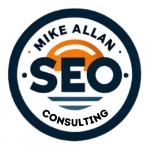Expanding on this essential topic in our self-directed SEO course, we delve deeper into “What is SEO?” to ensure a comprehensive understanding. Here’s an enhanced and detailed version of the excerpt from our course:
What is SEO?
SEO, or Search Engine Optimization, is optimizing your website to achieve higher rankings in search engine results pages (SERPs). When users search for specific terms or phrases on search engines like Google, Bing, or others, these engines display a list of websites relevant to the search query. The displayed websites are ranked based on relevance and authority, with the most pertinent and authoritative sites appearing at the top of the search results.
SEO involves various strategies and techniques to improve a website’s visibility to search engines. These strategies include keyword research, on-page optimization, link building, and technical SEO. Keyword research helps identify the terms and phrases that potential customers use to find products or services like yours. On-page optimization ensures that keywords are used effectively within your website’s content, titles, meta descriptions, and headers. Link building, however, focuses on acquiring high-quality backlinks from other reputable websites, which signals to search engines that your site is credible and authoritative. Technical SEO ensures your website is properly structured and free of technical issues that could hinder search engine indexing and ranking.
Why is SEO important?
SEO is crucial for several compelling reasons. Firstly, it helps your website rank higher in search results, increasing visibility and making it easier for potential customers to find you. This increased visibility can significantly benefit small businesses by attracting customers and driving more sales, fostering business growth.
In addition to driving traffic, SEO enhances your website’s user experience. An optimized website is more user-friendly, making it easier for visitors to navigate and quickly find the information they need. This ease of use leads to higher engagement and retention rates. For instance, users are more likely to stay on your site longer and explore multiple pages, which reduces the bounce rate (the percentage of visitors who leave your site after viewing only one page). A lower bounce rate indicates a well-structured and engaging website, which search engines favour in their rankings.
Moreover, SEO helps build brand credibility and trust. Users tend to trust websites that appear at the top of search results more than those that do not. High-ranking websites are perceived as more reliable and authoritative. Over time, as your website continues to rank well for relevant search queries, it builds a reputation for being a trusted source of information, products, or services in your niche.
Lastly, SEO is a cost-effective marketing strategy. Unlike paid advertising, which requires ongoing investment, the results of effective SEO are long-lasting. Once your website achieves high rankings, it can maintain those positions with regular maintenance and updates, providing a continuous stream of organic traffic without constant financial input.
Understanding and implementing SEO is fundamental to the success of your online presence. By improving your website’s search engine rankings, you can increase visibility, enhance user experience, build credibility, and drive sustainable growth for your business. If you’re eager to learn more about SEO and how to apply these techniques to your own website, register for our beginner’s course in SEO today. Our comprehensive course will equip you with the knowledge and skills needed to excel in the competitive digital landscape.


